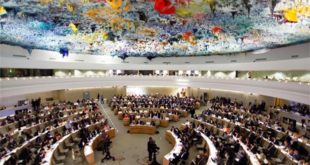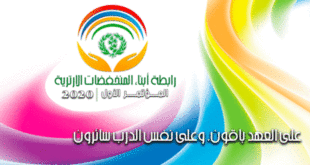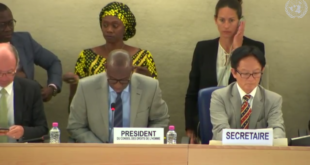Press Release
This workshop was meant to open doors for a constructive exchange of positions and views among members of the various Eritrean political parties and pressure groups which might lead to a future all-encompassing dialogue. In order to facilitate intensive discussions and keep the circle of participants to a manageable size, FI was only able to invite a limited number of organizations to this meeting. The choice of organizations was made by the FI based on a preliminary assessment of the Eritrean opposition. It was not the intention to exclude any organization, institution or party from the dialogue, but it is rather planned to forward the outcomes of this meeting to the organizations which were not invited.
The following organizations participated, next to FI staff members, Eritrean observers and especially invited members of the German political parties in the German parliament SPD, CDU, FDP, “Die Linke” and “Bündnis 90/Die Grünen”:
- Eritrean Lowland League (ELL)
- Eritrean Liberation Front (ELF)
- Al Nahda
- Red Sea Afar Democratic Organization (RSADO)
- Eritrean National Salvation Front (EFSF)
- Eritrean People’s Democratic Party (EPDP)
- Eritrean Unity for Democratic Change (EUDC)
- Forum for National Dialogue (FND-MEDREK)
- Network of Eritrean Women (NEW)
- Eritrean Youth Solidarity for Change (EYSC)
The invited organizations were given space to present their political programs and views and had been requested to present their respective organization’s standpoint on the following questions that had been forwarded to them prior to the workshop:
- a) Transition:
- How do you expect a future transition in Eritrea to take place?
- What is your standpoint on a peaceful, or a military solution, respectively?
- In your organization’s point of view: what should be the “starting point” or the fundament, on which Eritrea’s political, economic, military and societal reconstruction should be based upon?
- b) Political Parties:
- How does your organization want to promote its political program inside and outside of Eritrea?
- How is your organization preparing for acting as a political party in a future post-Isayas Eritrea?
- c) State Structure:
- What kind of state structure does your organization promote?
- What is your organization’s standpoint of the role of religion in a future post-Isayas Eritrea?
- What is your organization’s standpoint of the role of ethnicity in a future post-Isayas Eritrea?
- What is your organization’s standpoint of the role of languages and education in a future post-Isayas Eritrea?
- d) Military:
- What is your organization’s standpoint on the role of the Eritrean military in a future post-Isayas Eritrea?
- Will your organization promote a downsizing of the army?
- Will your organization promote an end of the National Service?
- e) PFDJ:
-
What is your organization’s standpoint on the role of the PFDJ in a future post-Isayas Eritrea?
- Are you willing to negotiate and/or cooperate with parts of the PFDJ in case a change comes from within?
After intense discussions, the participants unanimously formulated a joint communiqué that summarized the discussion’s main results. The communiqué was signed by representatives of all participating organizations and is herewith presented to the public (see attached pdf file).
The workshop took place in a very constructive atmosphere, based on the willingness and openness of all participants to conduct a friendly, peaceful and mutually respectful exchange of views. All participating organizations expressed their wish to continue this kind of workshop meetings on further topics related to the future transition of Eritrea, and to include those institutions and organizations into the further process which had not attended the Frankfurt workshop at this time.
Within the following weeks, FI will enter into a follow-up dialogue with those organizations and institutions that had not been invited for the first workshop. FI will inform them about the outcomes of the Frankfurt meeting and discuss about a possible future involvement. Therefore, FI will approach those institutions with whom the issue of transition had been previously discussed, and will be ready to enter into discussions with those institutions who are interested in joining future dialogues but have not been in any previous contact with FI.
As quite a lot of rumors circulated prior to the workshop meeting especially on the internet – mostly focusing on six main questions – FI herewith wants to clarify on some of the issues raised:
- Who stands behind the Felsberg Institute? It is the Felsberg Institute which stands behind the Felsberg Institute, and no other institution or party. FI is a non-profit, strictly neutral and independent academic institution without affiliation to any political party or group, neither in Eritrea nor in Germany.
- What are the motives of the Felsberg Institute to organize this workshop? The answer is that FI fears the outbreak of a civil war in Eritrea if the question of peaceful transition is not appropriately addressed. In addition, the massive influx of Eritrean refugees into Europe, and especially into Germany has confronted us with political, economic and social implications of the shortcomings of Eritrean internal politics. This needs to be addressed appropriately from an Eritrean as well as from a non-Eritrean standpoint.
- Who is financing the event? The workshop was 100% financed from the budget of the Felsberg Institute, without external funds, and without influence from outside.
- What is the purpose of the workshop? The initial idea was to organize a public event in order to give the Eritrean political parties and civil society organizations a space to present their political programs and views to the public. But in the course of internal discussions, the FI organizers came to the conclusion, that this should be postponed, and instead, there should rather be one or more preliminary internal meetings in order to figure out, to what extent the participating organizations share some basic assumptions about state structure, transition processes and peaceful solutions.
- Why were only some selected institutions invited? FI had planned for a maximum of 30 participants, and decided to start with some of the institutions that FI already knew. It is the FI’s intention to follow-up with one-on-one meetings with each organization that was not invited this time and that wants to join the discussion. FI will forward the results of the workshop to all institutions which are interested in cooperating with us.
- Why FI did not inform media representatives beforehand? Since this event was not meant to be a public meeting, FI did not see any necessity to give a public statement on the issues raised prior to the workshop. With this press release, we are presenting all necessary information to the media and to the public for further distribution and comments. For any further questions or contact please use the following email address: Eritrea@fibw.eu Felsberg, this 23rd November 2015
For any further questions or contact please use the following email address:
Eritrea@fibw.eu
Felsberg, this 23rd November 2015
The FI Organizing Committee
 ELL Eritrean Lowland League
ELL Eritrean Lowland League





